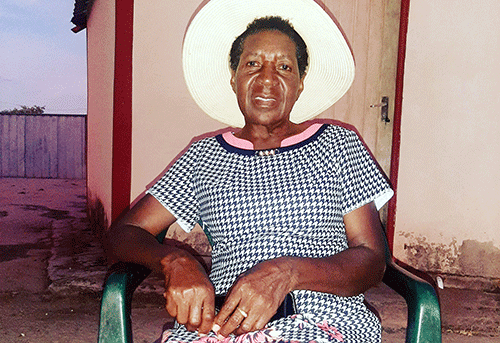Albertina Tuvahanga Heita is a veteran who suffered from the torture of the colonisers and witnessed the evil colonial deeds Namibia had gone through.
In 1974, when she was 19 and after completing grade 10 at the Oshigambo Secondary School, she went to Zambia with other youth with no other reason but to search for any way that could help them liberate Namibia.
Since she had a grade 10 certificate, she got an opportunity to further her studies through the scholarships given by the United Nations Development Programme (UNDP), whereby she completed her O levels, which was equivalent to grades 11 and 12 at that time.
She then underwent diplomatic training, and worked as a UN English tutor in Lusaka, tutoring adult Namibian refugees. When she returned to Namibia in 1984, with the skills she gained, she found a job in the ministry of foreign affairs and then in the ministry of labour. She later joined the Namibia Training Authority (NTA) as a manager of vocational training centre transformation until her retirement in 2015. Heita, who is now 67 years old, said she gives credits to the Namibian government for according her the chance to further her studies in Zambia.
“I thank the Namibian government for the opportunity we obtained to upgrade our studies, which gave us the knowledge that we used to straighten and shape up our country,” she added. Heita believes that Independence Day is really an important day as it reflects on the past and updates the new generation on the background of Namibia, and should seriously be distinguished from the rest of the days. She said it was on this day that they realised that the apartheid government’s effect had ended. Additionally, it was on this day that they witnessed the flag of the South African apartheid regime finally being lowered, and they knew that it would never return.
“It was after this day that we started voting democratically, and everything we cherish today came up due to this particular day,” she beamed.
Heita explained that after independence, Namibia has achieved a lot, especially in education and health.
“We only had a few schools then, but schools have now multiplied; roads are constructed; water points are demarcated; and hospitals and clinics are numerous and operational,” she emphasised.
She thus urged Namibian citizens, particularly recent generations, to appreciate and embrace the peace and freedom being experiencing at the moment, and not to take this freedom for granted as it came through a very narrow margin.
“Today’s freedom cost us lives. It is because of our brothers’ and sisters’ sacrifices that we are sleeping peacefully. So, let’s respect this day, the government and the leaders of the Republic of Namibia,” Heita stated.


